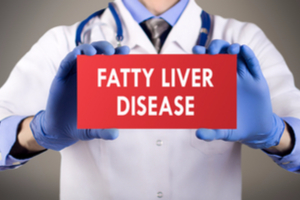 Have you ever gotten food poisoning? More than likely you have gotten sick from a meal at some point in your life. Millions of people are infected with a food-borne illness every year in the U.S., and according to recent research, certain foods are far more likely culprits than others.
Have you ever gotten food poisoning? More than likely you have gotten sick from a meal at some point in your life. Millions of people are infected with a food-borne illness every year in the U.S., and according to recent research, certain foods are far more likely culprits than others.
According to estimates from the CDC, 1 in every 6 Americans (or 48 million individuals) becomes sick due to food-borne illnesses every year. 128,000 of these individuals are hospitalized and 3,000 die due to their illness.
The U.S. Centers for Disease Control and Prevention, the U.S. Food and Drug Administration and the U.S. Department of Food and Agriculture’s Food Safety and Inspection Service have combined forces to detail the most common source of food-borne illnesses. The goal of this extensive research is to decrease the risk for food poisoning by enhancing the safety and effectiveness of food related policies.
What Foods Are Most Likely To Make You Sick?
There are different illnesses commonly associated with different foods. These food-borne illnesses include E. coli, listeria, campylobacter illness, and salmonella.
- 80% or more of all listeria cases were related to fruit (50%) and dairy products (31%).
- Salmonella was found to be more common than E.coli, listeria and campylobacter. This is because there are more foods with the potential to carry salmonella, including seeded vegetables, eggs, fruits, chicken, beef, pork and sprouts.
- Around 75% of all cases of Campylobacter illness were related to dairy products (66%) and chicken (8%). Raw milk dairy was the most commonly associated with this particular strain of illness.
- Over 80% of all reported E. coli O157 illnesses were linked to beef or crops, such as leafy vegetables.
These findings come from a study conducted through the Interagency Food Safety Analytics Collaboration, which is a partnership formed between the FDA, CDC and the agriculture department. This information comes from data collected over the span of more than 10 years, between 1998 and 2012.
The findings of this study hope to help reduce the risk for outbreaks in the future by spreading awareness and knowledge about food-borne illness. In a statement released by the CDC, “The new estimates, combined with other data, may shape agency priorities and support the development of regulations and performance standards and measures, among other activities.”
Symptoms Of Food Poisoning
Food poisoning is common, uncomfortable, distressing and sometimes it can even be life threatening. Signs and symptoms of food poisoning are not always the same, as symptoms may vary depending upon the source of the illness. The most common symptoms include:
- Nausea
- Diarrhea
- Cramps
- Stomach pain
- Fever
- Vomiting
Symptoms may arise within hours of eating contaminated food, or take a few days or longer to arise. In most instances, illness from food poisoning subsides within a few hours or several days.
How To Reduce Your Risk For Food Poisoning
Food poisoning ranges from serious to slight, but thankfully there are ways you can help prevent food-borne illness altogether. Here are some basic guidelines to help keep you healthy:
- Make sure that all meats and food from animal sources are thoroughly cooked and meet temperature guidelines for killing all bacteria.
- Buy range free, organic, grass-fed meat and dairy products, which have a far less chance of exposing you to potential illness.
- Purchase and prepare fish and shellfish with caution.
- Always check expiration dates to avoid consuming spoiled meats and eggs.
- When cooking be careful that juices from raw meats do not drip and contaminate surfaces or other foods.
- Immediately refrigerate meats, poultry, seafood, milk, and eggs to prevent premature spoiling.
- Always wash your hands after handling raw meat, as well as knives, cutting boards or anything else raw juices come in contact with.
- Do not refreeze foods once they have been thawed out all the way.
- Keep your refrigerator at 40 degrees Fahrenheit or lower.
- Thoroughly wash all fruits and vegetables for 30 seconds under warm water.
When Should You Visit Urgent Care For Food Poisoning?
In most cases your body will rid itself of the harmful substance that caused your food poisoning. You should return to normal health within a few hours or a few days. In some cases, food poisoning is far more serious and requires urgent medical care. Signs you should see a doctor for illness related to food poisoning:
- Consistent vomiting, and inability to keep down liquids
- Blood in vomit or stools
- Diarrhea that persists longer than several days
- Severe pain or cramps in your stomach
- A fever that reaches over 101.5 degrees F
- Dehydration (symptoms include inability to quench thirst, dry mouth, difficulty urinating, abnormally weak, dizzy or lightheaded)
- Any neurological symptoms, such as muscle weakness, tingling throughout the arms or blurry vision
If you are suffering from food poisoning, we are here for you! Visit Urgent Medical Center today.




